Home > Workshop and Training > IN JAPAN > Fiscal Year 2016 > Japan-Asia Youth Exchange Program in Science (SAKURA Science Plan) Held for Indonesia
Main content starts here.
Update:March 17, 2017
Japan-Asia Youth Exchange Program in Science (SAKURA Science Plan) Held for Indonesia
Under the sponsorship of the Japan Science and Technology Agency (JST), the Japan-Asia Youth Exchange Program in Science, or SAKURA Science Plan, aims at promoting exchanges between Asian and Japanese youths through short-term visits to Japan. Aged 40 and younger, the participants will play a crucial role in the future. ICETT organized a ten-day exchange program for the agency, while inviting university lecturers, graduate students, and government officials from the Republic of Indonesia. The Southeast Asian country has difficulty managing water quality and waste.
Background
Indonesia is an island country with quite a few islands just as Japan is. Because of its recent remarkable economic growth, the Southeast Asian country is confronted with a rapid expansion of domestic demand for consumer products, the increased migration of the population into the cities, and slow infrastructure development. These circumstances caused serious environmental issues, such as air, water pollution and increasing waste. In many areas, the country has already started to make various efforts and attempts to solve the problems as soon as possible.
From February 20 (Mon.) to March 1 (Wed.), 2017, the exchange program took place with the cooperation of the Consulate General of the Republic of Indonesia in Osaka, Japan. It focused on local environmental management, mainly water quality and solid waste management, which now attracts great interest from the country. It was also attended by nine Indonesian participants - university lecturers, graduate students, and government officials – who are engaged in research activities for environmental management.
Course Summary
At the beginning of the program, the Indonesian participants studied the Japanese legal systems regarding water quality and solid waste management. They also learned about how new systems have been developed step by step after standards gradually became stricter in accordance with change in living environments and social needs.
The participants visited sewage and domestic and industrial waste disposal facilities and saw how wastewater and waste from households and factories are disposed of. While drawing comparisons to the situation in their country, they exchanged their opinions about the technology used at these facilities and how wastewater and waste should eventually be recycled or discharged to nature.
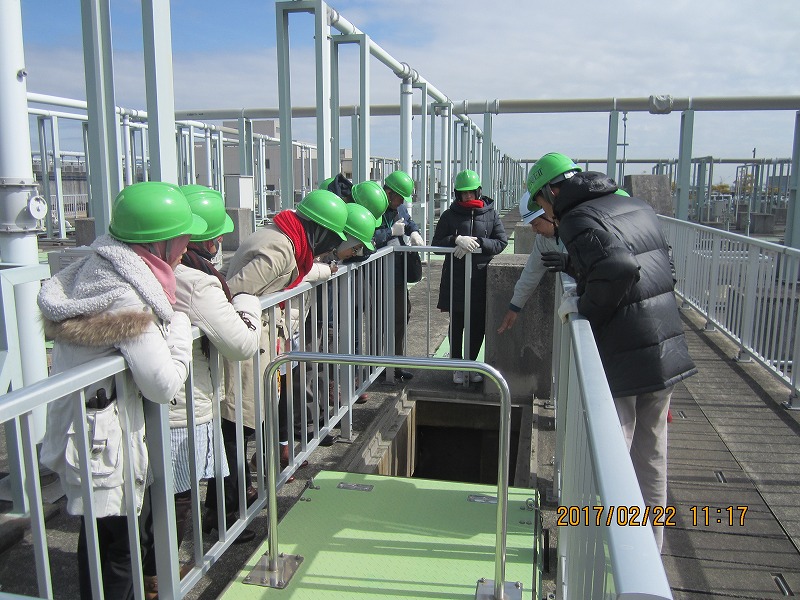 |
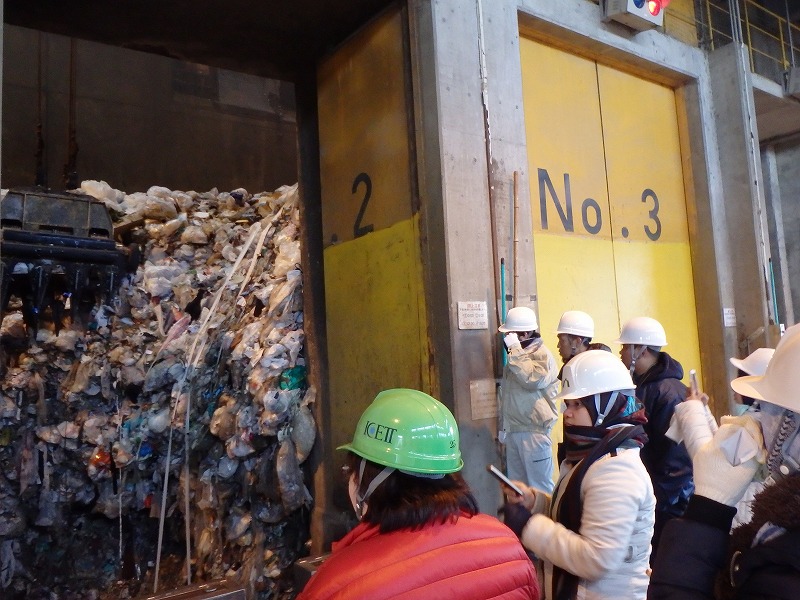 |
|
At a sewage treatment plant |
At a domestic waste disposal plant |
The participants also saw local community association members collect and sort recyclables and visited a local family who live in the neighborhood of ICETT. They appear to have realized that, by conducting eco-friendly activities, local residents play an important role in reducing waste and promoting recycling, which contributes to further improving the environment.
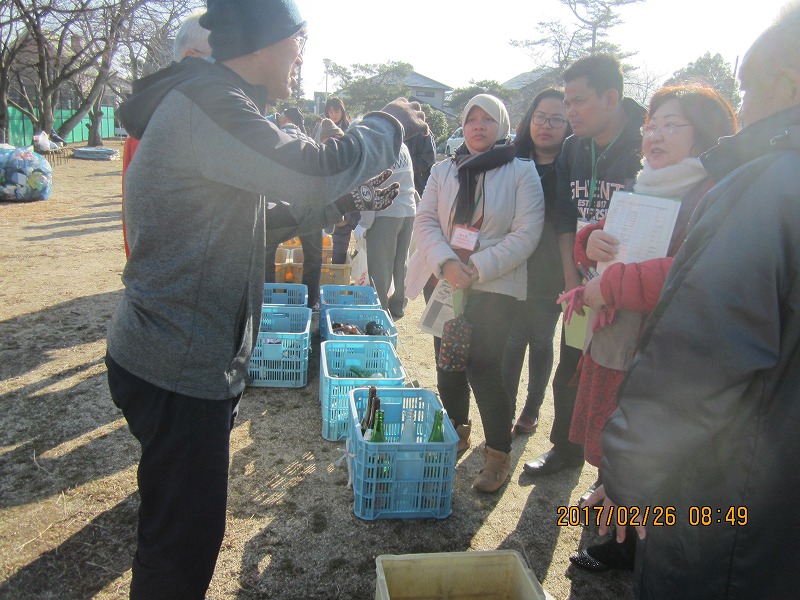 |
|
Local residents sorting and recovering resources |
The participants went to Toshijima Island, which is part of Toba City in Mie Prefecture. The island suffers large quantities of marine litter that drifts ashore from other places. Various efforts and initiatives by the municipal government and local residents have not only focused on removing the waste but also on calling on neighboring municipalities to control their waste in order to fundamentally solve the problem. The coastal areas of Indonesia are facing the same issue, too. There was a lively exchange of opinions with local islanders about how to inform the residents and companies of municipalities that are waste sources and therefore responsible for the situation on the island, measures to minimize the damage to the island’s main industry of aquafarming, struggles in tackling the problems, and possible future challenges.
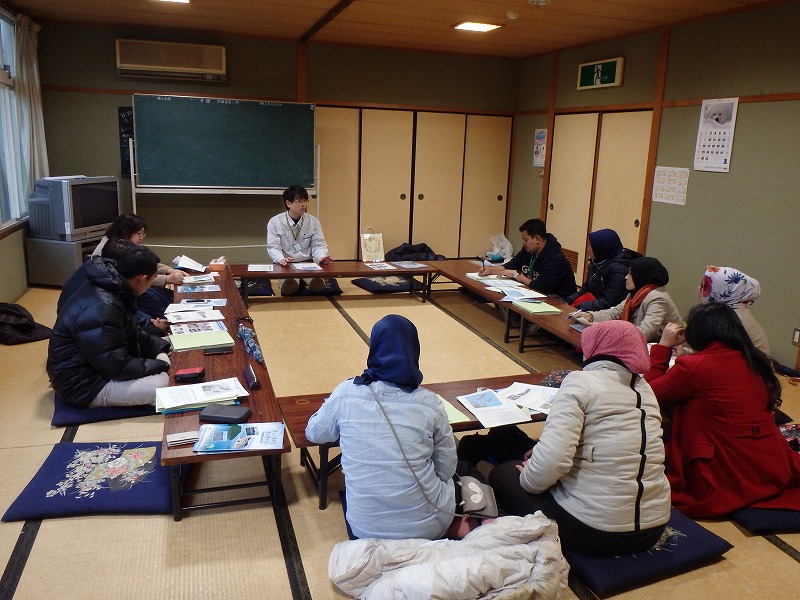 |
|
Exchanging opinions on marine litter with islanders |
During their stay in Japan, the participants deepened their understanding of the Japanese culture by experiencing the tea ceremony and visiting local families.
 |
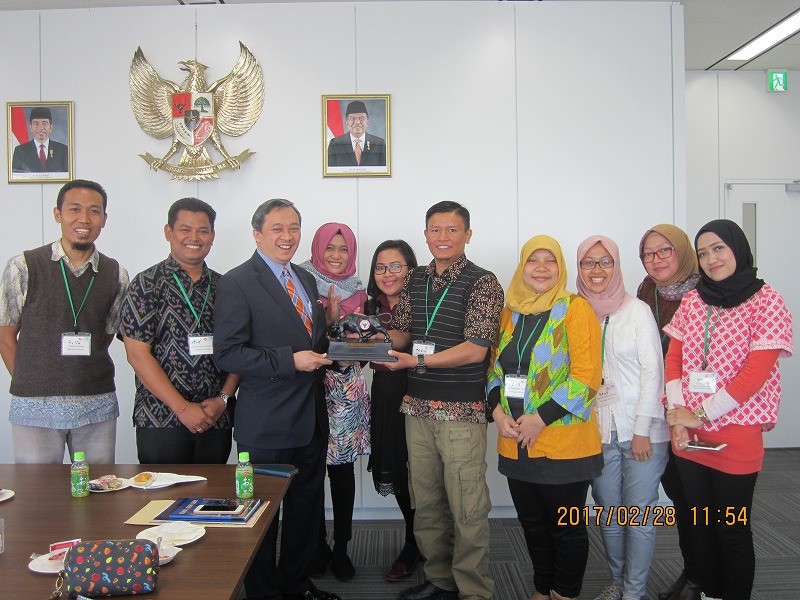 |
|
Experiencing the tea ceremony |
At the Consulate General of the Republic of Indonesia in Osaka |
Indonesia has quite a large working-age population. The young people of that generation are actively making great efforts to develop a society that pursues both economic growth and a better environment. The participants are highly expected to take advantage of what they learned in this program for their future research activities and contribute to the bright future not only of their own country but also of other countries which have similar environmental issues.
ICETT would very much like to express its gratitude for the cordial cooperation in this program of the Consulate General of the Republic of Indonesia in Osaka, local governments, businesses, and fishery-related organizations in Mie Prefecture.








